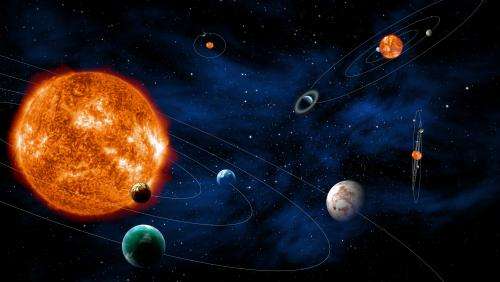UK joins Europe's PLATO planet-hunting mission

Planned for launch by 2024, the planet hunting mission will see strong involvement from several UK institutes, with Professor Don Pollacco from the University of Warwick providing UK scientific leadership for the European consortium.
With several UK space companies in a strong position to bid for the industrial opportunities that PLATO will produce, the UK's investment in the mission is also set to secure excellent return, generating economic growth and creating new jobs.
PLATO (Planetary Transits and Oscillations of stars) was selected by ESA's Science Programme Committee for implementation as part of its Cosmic Vision 2015–25 Programme.
The mission will address two key themes of Cosmic Vision: what are the conditions for planet formation and the emergence of life, and how does the Solar System work?
Dr Chris Castelli, Acting Director of Technology, Science and Exploration at the UK Space Agency said:
"With strong involvement from our science community and UK industry, PLATO is an important mission for the UK. It's also a very exciting mission, as this is the first time we've been involved in a spacecraft designed to seek out habitable planets like our own."
PLATO will monitor relatively nearby stars, searching for tiny, regular dips in brightness as their planets transit in front of them, temporarily blocking out a small fraction of the starlight.
By using 34 separate small telescopes and cameras, PLATO will search for planets around up to a million stars spread over half of the sky.
It will also investigate seismic activity in the stars, enabling a precise characterisation of the host sun of each planet discovered, including its mass, radius and age.
Professor Don Pollacco from the University of Warwick, said:
"PLATO is the logical next step in our search for extrasolar planets. It will revolutionise our knowledge of rocky planets and will enable the first directed search for life around sun-like stars in the next decade."
When coupled with ground-based radial velocity observations, PLATO's measurements will allow a planet's mass and radius to be calculated, and therefore its density, providing an indication of its composition.
The mission will identify and study thousands of exoplanetary systems, with an emphasis on discovering and characterising Earth-sized planets and super-Earths in the habitable zone of their parent star – the distance from the star where liquid surface water could exist.
Provided by UK Space Agency



















